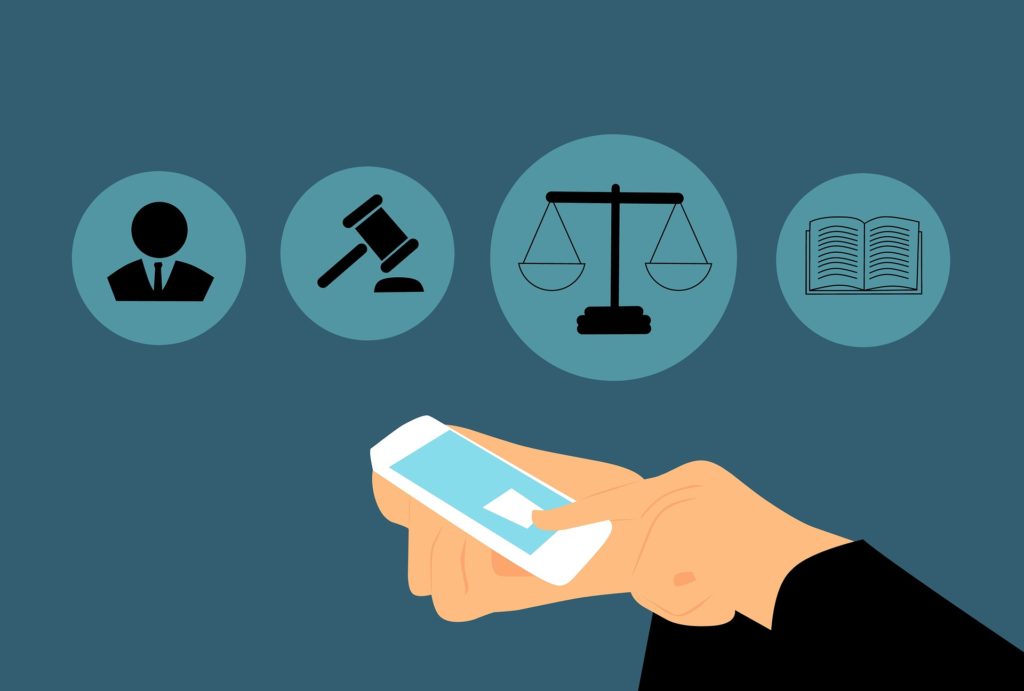
The Internet has fundamentally changed the way that people seek and evaluate professional services, including legal services. Increasing brand awareness, acquiring new customers, and achieving financial goals rely heavily on a law firm’s advertising and marketing efforts. Competition among law firms in in all practice areas increases daily. An understanding of the basics of a competitive marketplace is critical for firms that desire to grow.
State bars prohibited attorneys from advertising before 1977. With Bates v. Arizona, the U.S. Supreme Court changed that, paving the way for a more competitive landscape for law firms. The Court held that:
- Advertising attorneys’ services is “commercially protected speech” under the First Amendment
- As a matter of public policy, truthful advertising should be permitted
- Since attorneys serve society, advertising gives the public valuable information about legal services available to them
Law firms began to utilize traditional marketing approaches, such as word-of-mouth advertising, display ads, business cards, and brochures. These methods continue to prove effective in 2021 and beyond. However, lawyers must pair them with modern marketing methods, including:
- Pay-per-click
- Search engine optimization (SEO)
- Email, article, video, and digital marketing
- Content marketing
- Social media marketing
It doesn’t end there, though. Staying on top of the competitive market involves using appropriately optimized web content, engaging and unique blog and social media posts, appealing display ads, enlightening guest articles, and much more.
There’s one key difference, however, between marketing legal services and other services. State Bars impose significant – and sometime onerous – regulations on marketing legal services. Attorneys and their law firms must be cautious in their marketing efforts as non-complaint materials may invite sanctions – or worse. For this reason, lawyers must always engage in ethical and truthful marketing practices, avoiding improper or misleading marketing tactics.
The Dos and Don’ts of Legal Marketing
For attorneys and law firms, many unanswered questions remain. How can legal services be ethically marketed? How do they ensure that they are professionally responsible in advertising efforts? Consider these do’s and don’ts:
Do Honor the Wishes of Both Prospective Clients and Existing Clients
When leveraging online marketing strategies, you must be careful to avoid running afoul of rules regarding solicitation. ABA Model Rule 7.3(c)(b)(1) prohibits lawyers from soliciting professional employment when the target of the solicitation has expressed to the lawyer a desire not to be solicited by the lawyer. In other words, if a person asks to be removed from your email list, you have an ethical obligation to do so.
Be aware that some state’s professional conduct rules require lawyer advertisements to identify themselves as such and sometimes include other language.
Don’t Make False or Misleading Claims
Always practice honesty and don’t make any uncorroborated or false claims that can’t be verified. Rule 7.1 of the Colorado Rules of Professional Conduct prohibit attorneys from making false or misleading statements about themselves or their services. Ask yourself— if a rational person read such a statement would it mislead them? If the answer is yes, change it. Double-check facts before making any statements. Ensure that any statistical information in your ads or communications is correct.
Don’t Set Unrealistic Expectations
Maintain high ethical standards by not setting unrealistic expectations. Your online and offline marketing strategies should always clearly convey that past results do not guarantee a particular outcome. Don’t let your marketing efforts plant the seeds of false assumptions. For example, it’s okay to have a testimonials page, but you should only use testimonials with verifiable information. Be sure to use disclaimers to cultivate reasonable client expectations.
Do Be Careful with Comparative Statements
Various states have specific rules about using comparative statements in advertising. Be cognizant of what your state allows. For instance, in Illinois, comparative assertions like, “We are the best family law practice in Illinois,” aren’t permissible as they can’t be proven. Instead, mention a few success stories using current, factual, and verifiable statistical data.
Don’t Claim to Be an Expert
Many states prohibit lawyers from depicting themselves as an expert or a specialist. Such rules ensure no one makes false claims concerning themselves or their legal services. Conveying oneself as an expert or specialist in one legal field or another can lead to severe consequences. For this reason alone, it’s beneficial to hire a legal marketing firm.
An effective and ethical marketing strategy is one pillar of a successful law practice. Always refer to the professional conduct rules in your specific state. Then, determine how you can creatively demonstrate your skills and impart confidence in your potential clients without violating any rules.
When law firms are committed to ethical marketing campaigns, they can:
- Avoid consequential ethics violations
- Earn the trust of current and future clients
- Reinforce long-term growth
- Assist those who need legal help the most
Working with Attorney-Led Marketing Teams Can Put Your Mind at Ease
With all of these issues to consider, if you’re going to outsource your marketing, you should look for specialist marketing agencies that work in the legal vertical. It’s a huge plus if they have attorney leadership or at least of counsel that helps ensure compliance. s